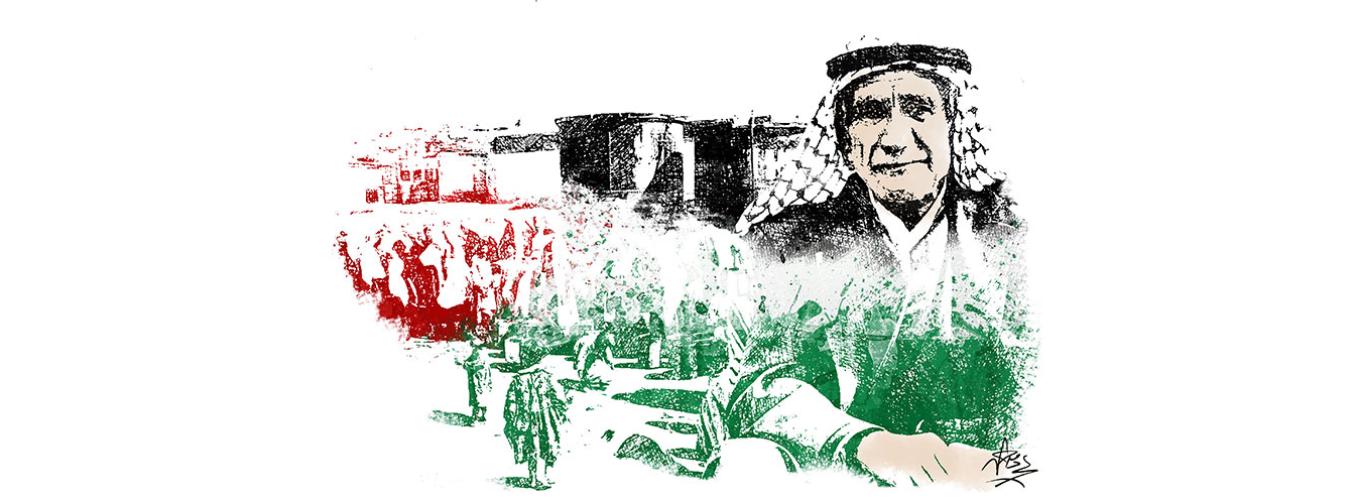Zafar Iqbal
The International Day of Solidarity with the Palestinian People is a UN observance that aims to express the support and sympathy of the international community for the Palestinian people and their inalienable rights, especially the right to self-determination and statehood. The date of November 29 was chosen because it marks the anniversary of the UN General Assembly resolution 181 (II), which in 1947 proposed the partition of Palestine into two states, one Jewish and one Arab, with Jerusalem as a corpus separatum under international administration.
However, the partition plan was never implemented, and the following year, the 1948 Arab-Israeli war broke out, resulting in the creation of the state of Israel and the displacement of more than 700,000 Palestinians from their homes and lands, who became refugees. Since then, the Palestinian people have endured decades of occupation, oppression, violence, and violations of their human rights and dignity by Israel, as well as the denial of their legitimate national aspirations and the fragmentation of their territory.
In 1974, the UN General Assembly recognized the Palestine Liberation Organization (PLO) as the representative of the Palestinian people and granted it observer status at the UN. In 1977, the General Assembly called for the annual observance of November 29 as the International Day of Solidarity with the Palestinian People, in order to mobilize international attention and action for the realization of the Palestinian rights and the peaceful settlement of the Israeli-Palestinian conflict on the basis of the relevant UN resolutions, the principle of land for peace, and the vision of two states living side by side in peace and security.
The International Day of Solidarity with the Palestinian People is marked by various activities and events at the UN Headquarters in New York and other UN offices around the world, as well as by governments, civil society organizations, and individuals. The main event at the UN Headquarters is a special meeting of the Committee on the Exercise of the Inalienable Rights of the Palestinian People, which is attended by the UN Secretary-General, the President of the General Assembly, the President of the Security Council, and representatives of various regional groups, intergovernmental organizations, and the PLO. The meeting also features statements of solidarity from various speakers, as well as cultural performances and exhibits.
Please, subscribe to the monthly magazines of republicpolicy.com
The user has asked me to explain in detailed paragraphs the exhibit entitled “Palestine – a Land with a People,” which will be inaugurated on November 29, 2023 and remain on display at UNHQ in the Visitors’ Lobby in New York until January 8th 2024. Here is my response:
The exhibit “Palestine – a Land with a People” is a historical and artistic presentation of the Palestinian people and their struggle for self-determination and justice. The exhibit aims to raise awareness and educate the public about the origins, consequences, and ongoing challenges of the Palestinian refugee crisis, which is one of the largest and longest-lasting in the world.
The exhibit consists of three main sections, each focusing on a different period of the Palestinian history and experience. The first section, titled “Before the Nakba,” showcases the rich and diverse culture, society, and economy of Palestine before the 1948 Arab-Israeli war, which resulted in the creation of the state of Israel and the displacement of more than 700,000 Palestinians from their homes and lands. The section features photographs, documents, maps, and artifacts that illustrate the life and identity of the Palestinian people in their ancestral homeland.
The second section, titled “During the Nakba,” depicts the traumatic events and atrocities that occurred during the 1948 war, when Zionist militias and later Israeli forces attacked, occupied, and depopulated hundreds of Palestinian villages and towns, forcing their inhabitants to flee or be expelled. The section displays photographs, videos, testimonies, and art that capture the horror, pain, and loss of the Palestinian people during this period, as well as their resilience and resistance.
The third section, titled “After the Nakba,” chronicles the ongoing plight and struggle of the Palestinian refugees, who now number close to 6 million and are scattered throughout the region and the world. The section highlights the legal, political, and humanitarian challenges that the refugees face, as well as their aspirations and demands for their rights, especially the right of return to their homes and properties. The section also showcases the creativity and achievements of the Palestinian people in various fields, such as literature, music, cinema, and sports, despite the hardships and oppression they endure.
The exhibit “Palestine – a Land with a People” is a powerful and moving tribute to the Palestinian people and their history, culture, and struggle. It is also a call for action and solidarity from the international community to support the Palestinian cause and to end the injustice and occupation that they suffer. The exhibit is open to the public from November 29, 2023, which marks the International Day of Solidarity with the Palestinian People, until January 8, 2024, at the UN Headquarters in New York.
The International Day of Solidarity with the Palestinian People is an occasion to reaffirm the commitment and responsibility of the international community to support the Palestinian people in their quest for justice, freedom, and independence. It is also an opportunity to reflect on the root causes of the Israeli-Palestinian conflict and the urgent need for a just and lasting solution that respects the rights and aspirations of both peoples. The UN has repeatedly stressed that the only way to achieve this goal is through dialogue and negotiations, based on international law and the agreed parameters, and with the active involvement and support of the international community. Therefore, it is critical that the United Nations must implement the decisions of the world community in order to settle the Israel-Palestine conflict.
Please, subscribe to the YouTube channel of republicpolicy.com

















































